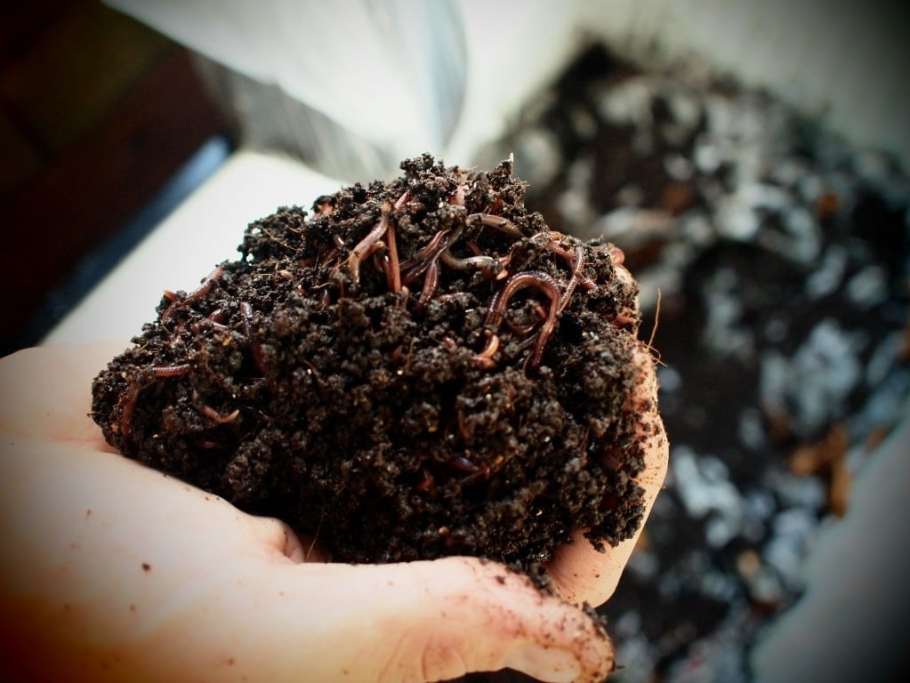Vermicomposting in Schools – A Beginner’s Guide
Be it a thousand-acre farm or a small patch of backyard garden, the soil needs to have long term fertility. While chemical fertilizers and nutrients can do the task quickly, the best approach is to make organic compost. Vermicompost falls into the category of organic compost, which helps to achieve optimum yields from the soil.
The process of vermicomposting involves composting with different species of worms. It is used for a mixture of decomposing organic matter, vegetables or food waste, along with vermicast. The final product after the disintegration of this organic matter by the earthworms is vermicompost.
In many schools, students are often taught about the many benefits of vermicomposting and the methods to do it. However, it is usually confined to theory. Students can contribute to recycling in many ways. School can inspire students with a more project-based curriculum. It would help in increasing knowledge in an immersive manner.
To look at it the right way, there is no better place than a school to prepare students with hands-on learning for eco-friendly living.
Contents
Benefits of Vermicomposting for Schools
While vermicomposting is an excellent way to educate students, it also promotes waste reduction in schools. Teachers and students can take part in experiments to encourage environmental leadership. Schools can use vermicomposting to recycle food waste and contribute to sustainability.
It is not a new initiative, and in fact, schools in several parts of the world already have integrated such projects into their curriculums. Kids World Nursery in Dubai is one of the schools in the UAE. It teaches about food-wastage and has a nursery garden they fertilize with compost made at the school.
Dubai Municipality’s Waste Management Department supplies the public school with compost boxes. They recycle leftover food to process it into fertilizer for school gardens.
Sunrise English Private School in Dubai also has a green campaign in place. Students, among other sustainability projects, collect food waste from their homes and communities regularly. These are placed into the composting machine and converted into manure at the school.
Qatar is also taking up large scale projects on organic waste recycling, which will soon find its way to schools as well. Schools across Asia and the Middle East have had success composting food waste, often for the benefit of landscaping and working in partnership with local composting organizations.
How to Setup Vermicomposting System in School?
Contrary to popular belief, vermicomposting could easily be done indoors as well. This means schools can set up worm bins in classrooms, as long as there are right measures in place to ensure hygiene.
The earthworms do not need light. They only require oxygen to live. But it would entirely depend upon the space you have and what model you choose. While individual classrooms cannot be expected to carry the burden to recycle the entire food waste from schools, it is an engaging way students can learn about organic matter decomposition and the role of earthworms in ecological sustainability. If done outside, it is better to provide a roof over the compost to protect it from rain.
You can find a variety of ways to vermicompost in school. You can modify a waste bin or buy a breathable composting system. It is easy to use and sustain aerobic conditions to promote decomposition without unpleasant odors.
School management or staff can contact the local governing departments to know of the regulations, and to determine the right recycling option depending on the school. Based on the weather and the space available, the local feasible options would vary.
How to Practice Vermicomposting Elsewhere
While schools can play a significant role in creating awareness among students, that is not the only way to get into vermicomposting. The process could be done anywhere, including other commercial areas that generate food waste, as well as in households.
Not every school has a waste management program that involves students. So having a compost bin in your house can be an encouraging way for everyone in the family to practice sustainability. The process of installing compost bins at home is similar to that of schools, and the size would vary depending on the number of family members and the amount of waste generated.
If you have a backyard, it is a great place to set up the compost bin. If not, a balcony will do the task just as efficiently. The compositing guidelines remain the same, and it is easily manageable with each family member taking the responsibility.
When possible, communities can also promote having vermicompost for the entire building complex, involving more households.
The Significance
Teaching children to care for the environment is a learning experience for the adults as well. It equips them with empathy, patience, and responsibility. Moreover, such a method will make them aware of how much food they waste. These are valuable lessons on sustainability, and everyone should play their role in making the world better for future generations.



3 thoughts on “Vermicomposting in Schools – A Beginner’s Guide”